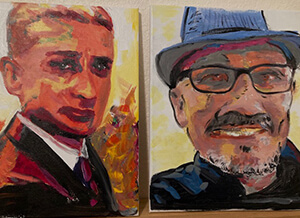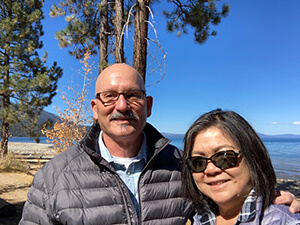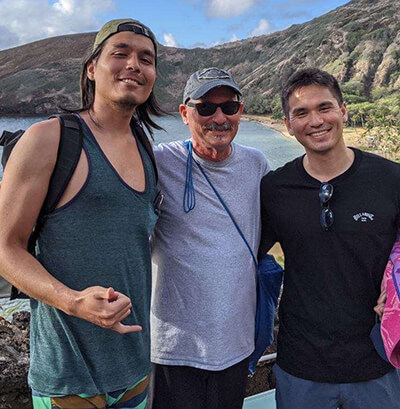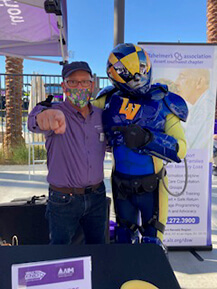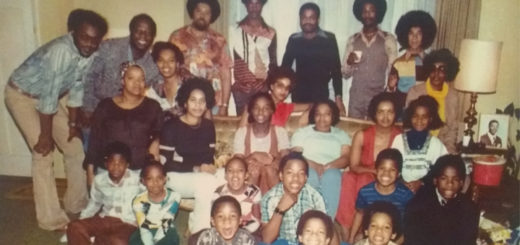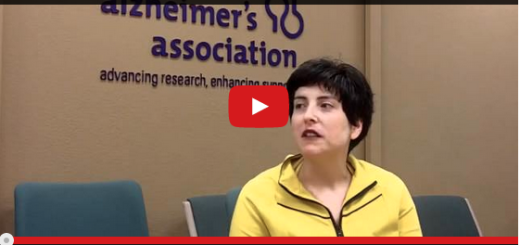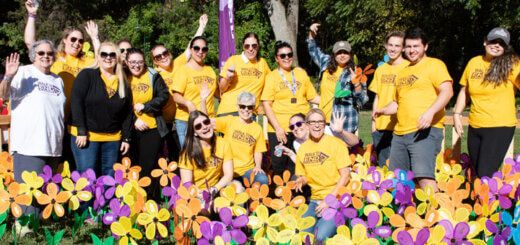Staff Spotlight: Charles Duarte, Nevada Public Policy and Advocacy Director
To help you meet our amazing Alzheimer’s Association® team, we are sharing stories of our chapter staff in this blog. Today, we’d like to introduce you to Charles Duarte, Nevada Public Policy and Advocacy Director.
Native Hawaiian
Charles “Chuck” Duarte was born and raised in Hawai‘i. “My mother was half Hawaiian,” said Chuck. “I grew up living every day in the ocean.” Chuck received his bachelor’s in lab science from the University of Hawai‘i and worked under the Dean of the School of Medicine for a few years. It was at this same time Chuck met his wife Emma, who had moved to Hawai‘i a few years prior from Okinawa.
While working for the dean, Chuck went on to earn his master’s degree in business. “After I received my master’s degree the dean told me, ‘You’re a lousy clinical lab scientist and should go into administration,’” said Chuck. “He helped me get a job in hospital administration at Queen’s Medical Center.”
A father with Alzheimer’s
During this time Chuck’s father, Charles, was diagnosed with Alzheimer’s disease. Chuck’s father had retired from his job as the Chief of Police in Honolulu after 35 years. In his retirement, he taught criminal justice at the University of Hawai‘i.
However, Chuck’s family noticed that Chuck’s father was having a harder time preparing his lesson plans. He was also beginning to hallucinate, which can happen with a person who has dementia.
Hallucinations are false perceptions of objects or events involving the senses. These false perceptions are caused by changes within the brain that result from Alzheimer’s. The person may see the face of a former friend in a curtain or may see insects crawling on his or her hand. In other cases, a person may hear someone talking and may even engage in conversation with the imagined person.
“We didn’t know about the Alzheimer’s Association back in the 90s,” said Chuck. “Neither my mom or I had a clue, and the internet wasn’t something we were accessing for resources. My sisters and I took turns helping mom while our father was living at home.”
A car accident
As the disease progressed, Chuck’s father became forgetful, paranoid and started wandering. “We would find his shoes in the fridge,” said Chuck. “He was concerned someone was stealing from him and was wandering around the house all night long.”
Chuck and his family were concerned that Chuck’s father would get up one night and leave the house. “I put all these locks on the house so he couldn’t leave,” said Chuck. “But that son-of-a-gun figured it out and got out one night.”
Unfortunately, that night after leaving his home, Chuck’s father was hit by car and broke his hip. Due to his cognitive decline, he was unable to do the necessary rehabilitation exercises for his hip. Chuck’s father moved into a care setting and remained there until he passed in 2003.
Moving to Nevada
After his time working in hospital administration, the Governor of Hawai‘i asked Chuck to help run the state’s Medicaid program, which he did for three years. Looking for a change, Chuck was asked by the Governor of Nevada to run the Medicaid program in Carson City.
Chuck and his wife Emma moved to Nevada with their two small children. “Hawai‘i is a hard place to raise a family,” said Chuck. “The opportunity [in Nevada] for our sons to grow up in a rural area in a good school district was too good. Both of my sons have now graduated from the University of Reno. We are very proud of them. They’ve done very well for themselves.”
Chuck ran the Medicaid program for 12 years before moving to a new job with a Federally Qualified Health Center (FQHC). FQHCs are community-based health care providers that provide care in underserved communities.
Working for the Alzheimer’s Association
In 2019, Chuck wanted to become an Alzheimer’s Association volunteer. His goal was to become a Community Educator where he would give presentation about Alzheimer’s disease.
As luck would have it, a grant position opened at the Association that Chuck was qualified for. He applied for the job and started working at the Association in the winter of 2019. He continued in that position until July 2021, when he moved into his current role as the Nevada Public Policy and Advocacy Director.
Working across two chapters
Chuck’s works across two different Alzheimer’s Association Chapters. The chapter Chuck is based out of is the Northern California and Northern Nevada Chapter, which covers everything north of Fresno in California and the northern half of Nevada. The second chapter Chuck reports to is the Desert Southwest Chapter, which covers the southern part of Nevada and all of Arizona.
“I thought there would be difficulties with communication,” said Chuck. “I’m a Northern California and Northern Nevada employee but I report to the Executive Director in Desert Southwest. I have great people to work with in both chapters. I’m blessed in that regard; everyone is so easy to work with.”
Public policies
As the Public Policy and Advocacy Director, Chuck is responsible not only for training and working with volunteers but also working with the Nevada legislature to help get bills passed. “For advocacy, I make sure we have volunteers who can support state policy priorities and participate in meetings with legislators,” said Chuck. “On the policy side, I’m developing our state platform to be consistent with our nationwide plan.”
Currently Chuck is working on three objectives for Nevada that he’d like to accomplish in the next few years:
- Expand access to an early and accurate diagnosis.
Modeled after a successful program in Georgia, this program would provide clinical assessments to people who are experiencing memory challenges or other signs of dementia. The goal is to have the University of Las Vegas and the University of Reno offer training to enhance screening in primary care practices.
Once a diagnosis is made, caregivers would be given a care plan for both the person living with the disease and the caregiver. Additionally, caregivers would be paired with a navigator who would make sure caregivers are able to access the resources they need to be better caregivers.
- Dementia Care Specialist program.
Law enforcement and county professionals are having more interactions with people who are living with dementia. They have expressed a concern about accessing resources. This program, modeled after a successful dementia care specialist program in Wisconsin, would work with the University of Reno’s School of Health and their Dementia, Engagement, Education and Research Program to train and supervise law enforcement on responding to calls involving someone living with dementia.
- Structured family caregiver and Medicaid program.
This program would help better support caregivers, both at home and in the community. It aims to find ways to train and support caregivers, find easier ways for them to get paid for their care and help them maintain both their mental and physical health.
“I steal from the best,” joked Chuck who was referring to using programs from other states. “The key is not to do something just to do something. You want to do something that works.”
Nevada Advocacy Day
Nevada’s legislature is unique in that it only meets for 120 days every other year. Because of this, Nevada Advocacy Day looks different than most other states. They have a big event when the legislature is in session and a small event in the “off” years. This year is an “off” year.
“We schedule this year’s Advocacy Day around a series of meetings for a committee that has jurisdiction on senior issues,” said Chuck. “Right now, a lot of key committees haven’t been established or set up a schedule yet. Once they are we’ll have a small Advocacy Day.”
Nevada’s Advocacy Day is scheduled for April 12.
Favorite part of working for the Alzheimer’s Association
Chuck loves the support he gets from his coworkers, not only locally but across the nation. “It’s really the ease in which I can get help and support when I need it,” said Chuck. “The programs we’re looking at establishing here, they were developed by colleagues in other states. The ability to call someone from Wisconsin, Florida or Georgia makes it easy when it comes to state affairs.”
Join us on April 12 for Nevada’s Advocacy Day or become an advocate at alz.org/advocate.
Interested in working for the Alzheimer’s Association? Find our current list of openings at alz.org/jobs.





